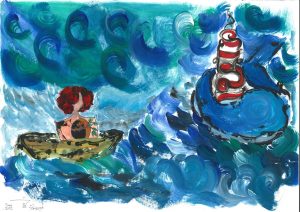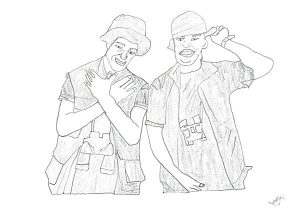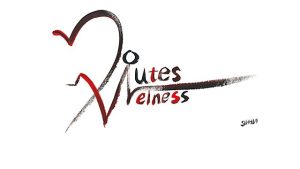A research project designed to support access to healthcare services for displaced people has brought people with refugee experience together with academics and art and cultural providers to produce artwork for the project.

‘Hope.’
The project, previously known as Forced to Flee, has changed its name to Routes to Wellness to reflect the project’s positive focus, a change which came about through collaboration with the people who will use the service. A diverse group of refugees and service users worked closely with researchers and identified the need for a more positive and forward-looking name.
The art workshop, hosted by Devon and Cornwall Refugee Services, a key research partner in the project, brought together a group, including service users, members of The Box Plymouth team and academic researchers to produce a logo and images to capture and communicate the positive message of the research project.
“It was a great testament to the power of art in conveying key aspects of human identity and experience”
Associate Professor Dr Helen Lloyd, lead researcher on the Routes to Wellness study said:

‘Friendship’
“I loved being part of our workshop to design our project artwork. It was a great testament to the power of art in conveying key aspects of human identity and experience without the need for words. The workshop was approached with generosity and kindness by all who participated and reaffirmed to me the importance of co-design for meaningful research. It was also fabulous to have members of the Box in Plymouth take part, this created a nice opportunity for cultural collaboration between people with refugee experience, academia and art and cultural providers”.
The full name of the project is Routes to Wellness: Co-designing a peer-led community approach to support the mental health of refugees.

The new logo
Its aim is to design a model with refugees to create a service which fits their needs. The study hopes to harness the collective skills of refugees, researchers, and service providers to create a shared language about mental health which support workers and refugees will use to help identify health goals and access support.
